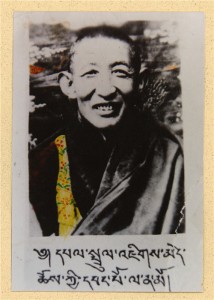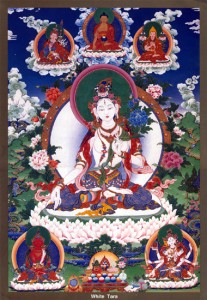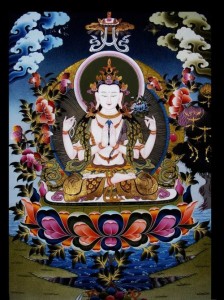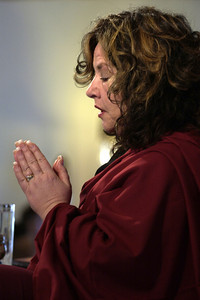
The following is respectfully quoted from “The Words of My Perfect Teacher” by Patrul Rinpoche
1. Meditation on impartiality
Impartiality (tang nyom in Tibetan) means giving up (tang) our hatred for enemies and infatuation with friends, and having an even-minded (nyom) attitude towards all beings, free of attachment to those close to us and aversion for those who are distant.
As things are now, we are very attached to those we think of as part of our own group–father and mother, relatives and so on–while we feel an intolerable aversion towards our enemies and those associated with them. This is a mistake, and comes from a lack of investigation.
In former lives, those whom we now consider our enemies have surely been close to us, ever lovingly at our side, looking after us with goodwill and giving us unimaginable help and support. Conversely, many of those whom we now call friends have certainly been against us and done us harm. As we saw in the chapter on impermanence, this is illustrated by the words of the sublime Kātyāyana:
He eats his father’s flesh, beats his mother off,
He dandles on his lap his own unfortunate enemy;
The wife is gnawing at her husband’s bones.
I laugh to see what happens in samsāra’s show!
Another example is the story of Princess Pema Sel, daughter of the Dharma King Trisong Detsen. When she died at the age of seventeen, her father went to ask Guru Rinpoche how such a thing could happen.
“I would have thought that my daughter must have been someone with pure past actions,” said the king. “She was born as the daughter of King Trisong Detsun. She met all of you translators and pandits, who are like real Buddhas. So how can it be that her life was nevertheless so short?”
“It was not at all because of any pure past deeds that the princess was born as your daughter,” the Master replied. “Once I, Padma, you, the great Dharma King, and the great Bodhisattva Abbot had been born as three low-caste boys. We were building the Great Stūpa of Jarung Khashor. At that time the princess had taken birth as an insect, which stung you on the neck. Brushing off with your hand, you accidentally killed it. Because of the debt you incurred in taking that life, the insect was reborn as your daughter.”
If even the children of Dharma King Trisong Detsun, who was Mañjuśrī in person, could be born to him in that way as a result of his past actions, what can one say about other beings?
At present we are closely linked with our parents and children. We feel great affection for them and have incredible aspirations for them. When they suffer, or anything undesirable happens to them, we are more upset than we would be if such things had happened to us personally. All this is simply the repayment of debts for the harm we have done each other in past lives.
Of all the people who are now our enemies, there is not one who has not been our father or mother in the course of all our previous lives. Even now, the fact that we consider them to be against us does not necessarily mean that they are actually doing us any harm. There are some we think of as opponents who, from their side, do not see us in that way at all. Others might feel that they are our enemies but are quite incapable of doing us any real harm. There are also people who at the moment seem to be harming us, but in the long term what they are doing to us might bring us recognition and appreciation in this life, or make us turn to the Dharma and thus bring us much benefit and happiness. yet others, if we can skillfully adapt to their characters and win them over with gentle words until we reach some agreement, might quite easily turn into friends.
On the other hand there are all those whom we normally consider closest to us–our children, for example. But there are sons and daughters who have cheated or even murdered their parents, and join forces with them to quarrel with their own family and plunder their wealth. Even we we get along well with those who are dear to us, their sorrows and problems actually affect us even more strongly than our own difficulties. In order to help our friends, our children and other relatives, we pile up great waves of negative actions which will sweep us into the hells in our next life. When we really want to practise the Dharma properly they hold us back. Unable to give up our obsession with parents, children, and family, we keep putting off Dharma practice until later, and so never find the time for it. In short, such people may harm us even more than our enemies.
What is more, there is no guarantee that those we consider adversaries today will not be our children in future lives, or that our purest friends will not be reborn as our enemies, and so on. It is only because we take these fleeing perceptions of “friend” and “enemy” as real that we accumulate negative actions through attachment and hatred. Why do we hold on to this millstone which will drag us down into the lower realms?
Make a firm decision, therefore, to see all infinite beings as your own parents and children. Then, like the great beings of the past whose lives we can read about, consider all friends and enemies as the same.
First, towards all those you do not like at all–those who arouse anger and hatred in you–train your mind by various means so that the anger and hatred you feel no longer arise. Think of them as you would of someone neutral, who does you neither good nor harm. Then reflect that the innumerable beings to whom you feel neutral have been your father or mother sometime during your past lives throughout time without beginning. Meditate on this theme, training yourself until you feel the same love for them you do for your present parents. Finally, meditate until you feel the same compassion towards all beings–whether you see them as friends, enemies or in between–as you do for your own parents.
Now, it is no substitute for boundless impartiality just to think of everybody, friends, enemies, as the same, without any particular feeling of compassion, hatred or whatever. This is mindless impartiality, and brings neither harm nor benefit. The image given for truly boundless impartiality is a banquet given by a great sage. When the great sages of old offered feasts they would invite everyone, high or low, powerful or weak, good or bad, exceptional or ordinary, without making any distinction whatsoever. Likewise, our attitude toward all beings throughout space should be a vast feeling of compassion, encompassing them all equally. Train your mind until you reach such a state of boundless impartiality.
2. Meditation on love
Through meditating on boundless impartiality as described, you come to regard all beings of the three worlds with the same great love. The love that you feel for all fo them should be like that of parents taking care of their young children. They ignore all their children’s ingratitude and all the difficulties involved, devoting their every thought, word and deed entirely to making their little ones happy, comfortable and cosy. Likewise, in this life and in all your future lives, devote everything you do, say or think to the well-being and happiness of all beings.
Al those beings are striving for happiness and comfort. They all want to be happy and comfortable; not one of them wants to be unhappy or to suffer. Yet they do not understand that the cause of happiness is positive actions, and instead give themselves over to the ten negative actions. Their deepest wishes and their actions are therefore at odds: in their attempts to find happiness, they only bring suffering upon themselves.
Over and over again, meditate on the thought of how wonderful it would be if each one of those beings could have all the happiness and comfort they wish. Meditate on it until you want others to be happy just as intensely as you want to be happy yourself.
The sūtras speak of “loving actions of body, loving actions of speech, loving actions of mind.” What this means is that everything you say with your mouth or do with your hands, instead of being harmful to others, should be straightforward and kind. As it says in The way of the Bodhisattva:
Whenever catching sight of others
Look on them with open, loving heart.
Even when you simply look at someone else, let that look be smiling and pleasant rather than an aggressive glare or some expression of anger. There are stories about this, like the one about the powerful ruler who glared at everyone with a very wrathful look. It is said that he was reborn as a preta living on left-overs under the stove of a house, and after that, because he had also looked at a holy being in that way, he was reborn in hell.
Whatever actions you do with your body, try to do them gently and pleasantly, endeavoring not to harm others but to help them. Your speech should not express such attitudes as contempt, criticism or jealousy. Make every single word you say pleasant and true. As for your mental attitude, when you help others do not wish for anything good in return. Do not be a hypocrite and try to make other people see you as a Bodhisattva because of your kind words and actions. Siply wish for others’ happiness from the bottom of your heat and only consider what would be most beneficial for them. Pray again and again with these words: “Throughout all my lives, may I never harm so much as a single hair on another being’s head, and may I always help each of them.”
It is particularly important to avoid making anyone under your authority suffer, by beating them, forcing them to work too hard and so on. This applies to your servants and also to your animals, right down to the humblest watchdog. Always, under all circumstances, be kind to them in thought, word and deed. To be reborn as a servant, or as a watchdog, for that matter, and to be despised and looked down upon by everyone, is the maturation of the effects of past actions. It is the reciprocal effect of having despised and looked down on others while in a position of power in a past life. If you now despite others because of your own power and wealth, you will repay that debt in some future time by being reborn as their servants. So be especially kind to those in a lower position than yourself.
Anything you can do physically, verbally or mentally to help your own parents, or those suffering from chronic ill health, will bring inconceivable benefits. Jowo Atīsa says:
To be kind to those who have come from afar, to those who have been ill for a long time, or to our parents in their old age, is equivalent to meditating on emptiness of which compassion is the very essence.
Our parents have shown us such immense love and kindness that to upset them in their old age would be an extremely negative act. The Buddha himself, to repay his mother’s kindness, went to the Heaven of the Thirty-three to teach her the Dharma. It is said that even if we were to serve our parents by carrying them around the whole world on our shoulders, it would still not repay their kindness. However, can can repay that kindness by introducing them to the Buddha’s teaching. So always serve your parents in thought, word and deed, and try to find ways to bring them to the Dharma.








